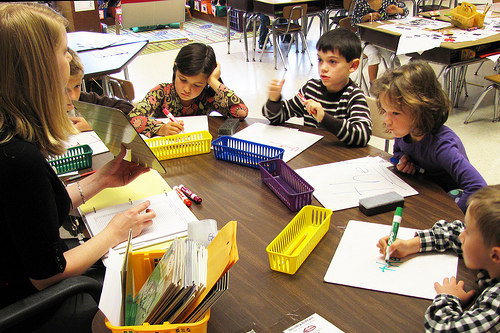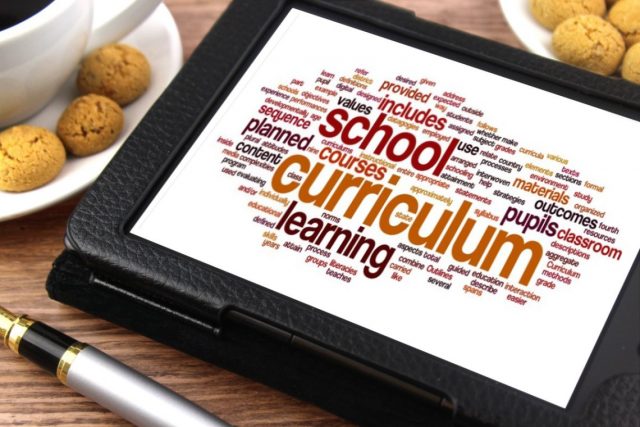Many students want to know how to get out of ELL / ESL. There is no magic solution: you should be realistic about how long it may take. It may take up to 7 years to become fluent in English, and there are so many things to learn, depending on which grade and level you are. It can be tough to know what to focus on first! For the proactive student, below are some tips and tricks to help speed the process of getting out of ELL / ESL.
Get to know your teacher and her expectations

Talk in class and ask questions. Stay after class. Ask for extra work. Show your teacher your personality and find out what hers is. Teachers will make an extra effort to personalize their instruction if you ask. And then be sure to follow any advice she gives you.
Get to know the curriculum and assessments and focus on improving your weaknesses

There are many things to learn: reading comprehension, essay writing, grammar, vocabulary, conversation, cultural context, listening, and pronunciation. Everyone has different strengths and weaknesses and it is difficult to know what to focus on first. Ask your teacher to look at your test results, read ahead in your textbook, and even learn about what the curriculum will be at the next level. If you know where you are at (your level, strengths and weaknesses) and where you need to get to (what it takes to get to the next level) your efforts will show results sooner.
Create a learning plan

Put extra time into English improvement in addition to basic homework completion. Once you have created your learning plan, show it to your teacher to get feedback about it.
Remember: SCC.
S= schedule. Keep a productive schedule for your daily learning. When planning a study time, be sure to be well rested and nourished, and give yourself a stretch break every 20 or 30 minutes. Keep the same daily routine and make sure to put time into studying at two different times of the day. Try 20 minutes before going to school and an hour after dinner.
C= content. In addition to homework completion, Make sure to focus on daily fluency and accuracy tasks. For example, writing a journal which focuses on topic without worrying too much about error correction, is a good daily morning task. An example evening task would be 20 minutes of grammar focus followed by 20 minutes of vocab memorization using flashcards, followed by a final 20 minutes of reading something you enjoy but which is just one level above your English level.
C= connections. Make connections with other students and form a peer group, find some friends online to study with, work with a tutor, or do a language exchange. Language is a social tool, and should not be studied only in books. Use it to communicate with people.
Break out of your language social group

Canada is very different from your home country. It can be easy to become homesick. Often homesick students can become negative about Canadian culture and just want to call and talk to friends back home, watch movies and TV programs from back home, and make friends of the same language group in Canada. If you are doing this for several months, you should stop! It will prevent you from learning English more quickly. Make sure to be social in English. Find friends who do not speak your native language, join clubs, watch English movies, go to community centre events, and eat and study together. If you make new friends from a country which is not your own, you will learn and grow as an English language learner and as a person.
Understand the way you learn

Know how the English class is different from how you have learned language before. Know what you need to improve. Do you remember words best by listening and repeating, or by drawing pictures or using gestures when you say the new word? Are you more successful at a task if you talk about it, if you discover how to do it, or if the teacher gives you really clear instructions? Your ELL teacher in Canada might use a different teaching style than what you are used to. It might take time to get used to the new style. You might be able to ask your teacher to use activities in class which help you learn better; but remember, you cannot just memorize and take tests to improve your English ability.



 Future Trends in Education Part 2
Future Trends in Education Part 2